What makes the China-India dispute so hot?
China and India, two nuclear-armed nations with a combined population of 2.7 billion, are locked in a military stalemate over a tract of land in Bhutan, a kingdom in the remote Himalayas.
The latest disagreement between the two countries, which began in mid-June, is considered the most serious since the border war between the two countries in 1962, Bloomberg reported. The dispute comes as the two rising regional powers vie for influence in the region.
The current flashpoint lies near a tri-junction between Bhutan, China’s Tibet region and India’s Sikkim. As a result of the disagreement, both China and India have increased their troop presence in the area.
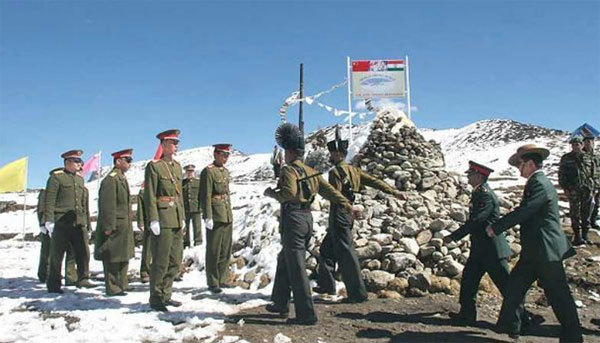 |
Where does disagreement come from?
Tensions flared when India protested against China's extension of a border that passes through a plateau that India calls Doklam and China calls Donglang.
The plateau lies at the tri-junction between China, India's northeastern state of Sikkim and Bhutan. It is also a disputed area between Beijing and Thimphu. India supports Bhutan's claims to the Doklam plateau.
India fears that if completed, the road would give China access to India’s strategic but vulnerable artery, a 20km corridor that connects seven northeastern states to the country’s mainland.
Officials in New Delhi told regional analyst Subir Bhaumik that they had objected to the road being opened as it could have allowed Chinese troops to storm Indian positions, destroying two bunkers at the nearby Lalten outpost.
"We did not fire, our soldiers just set up a human wall and prevented China from invading further," said an Indian general who asked not to be named.
 |
Meanwhile, Chinese officials said that the Indian border guards' objection to the road opening was to block normal activities on the Chinese side. Beijing demanded that New Delhi immediately withdraw its troops.
What is the current situation?
Both India and China have deployed additional troops to the border area. According to media reports, soldiers from both sides are closely monitoring each other's movements.
Chinese Ambassador to India Luo Zhaohui told Indian news agency PTI that New Delhi must withdraw its troops unconditionally for peace to be restored, a statement that China saw as a diplomatic escalation.
China also retaliated by stopping 57 Indian pilgrims, who were on their way to the Manas Sarovar lake in Tibet, as they crossed the Nathu La pass in Sikkim. Manas Sarovar lake is a sacred place for Hindus and India and China have had an official agreement in the past to allow devotees to visit the lake.
Meanwhile, Bhutan also asked China to stop opening the road, saying it was a violation of an agreement between the two countries.
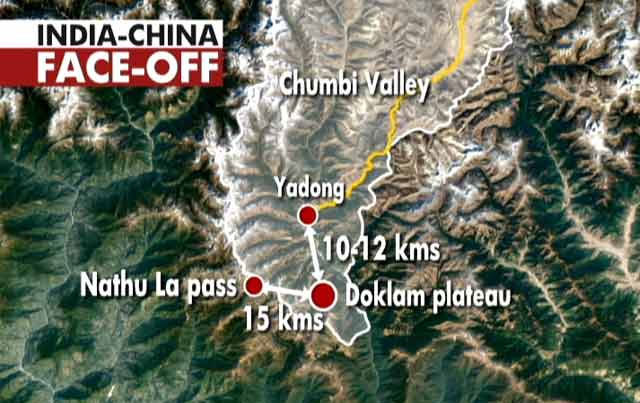 |
What does India say?
Indian military experts say Sikkim is the only area through which India can counterattack if attacked by China unexpectedly. It is also the only route along the Himalayan border where the Indian army has a tactical and topographical advantage. It has higher terrain while Chinese positions are squeezed between India and Bhutan.
"China knows that and they are always trying to prevent us from getting an advantage," retired Major General Gaganjit Singh, a former commander of India's border guards, told the BBC.
Last week, the Indian Ministry of External Affairs said that China's expansion of the road would change the existing status quo and seriously impact India's security.
Indian Defense and Finance Minister Arun Jaitley also warned that the India of 2017 is very different from that of 1962 and the country has the right to protect its territorial integrity.
What does China say?
China has just reaffirmed its sovereignty over the above area and declared that the road under construction is within its territory, accusing Indian troops of encroachment.
Beijing reminded that India must remember how it lost the 1962 war and warned that China is now stronger than it was decades ago.
A Chinese Foreign Ministry spokesman said earlier this month that the border in Sikkim was demarcated in an 1890 agreement with the British and that such violations by India were very serious.
China's Global Times also accused India of undermining Bhutan's sovereignty by interfering in the road project, even though Bhutan had asked China to stop the project.
Bhutan's role in the Sino-Indian dispute
Bhutan's ambassador to India, Vetsop Namgyel, said China's opening of the road was a violation of an agreement between the two countries. Bhutan and China do not have formal diplomatic relations but maintain contact through a mission in New Delhi.
Security analyst Jaideep Saikia told the BBC that Beijing was trying to resolve things with Thimphu directly.
What will happen?
Armed clashes have occurred between China and India since 1967, and tensions have flared occasionally. Commentators say the latest tensions appear to be the most serious escalation in recent years.
However, most observers believe that a second war between China and India will not break out. India will hold elections in 2019 and the country will not risk conflict with a stronger opponent.
As for China, it also does not want to do anything that would damage the image it is building as a leading nation on the international stage.
According to Vietnamnet.vn
| RELATED NEWS |
|---|


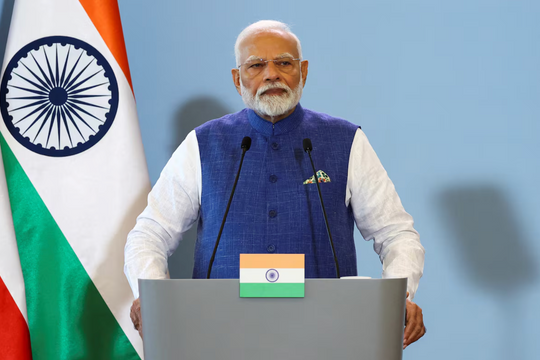
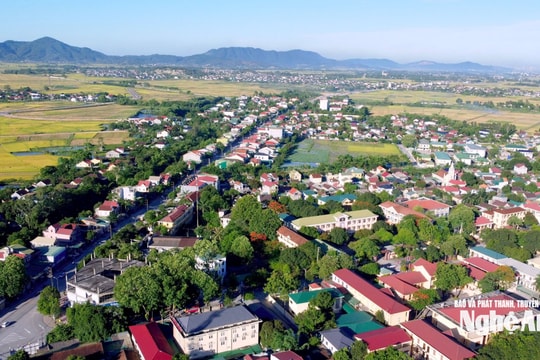
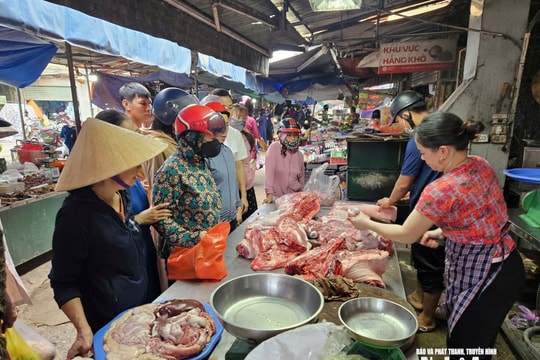
.jpeg)

